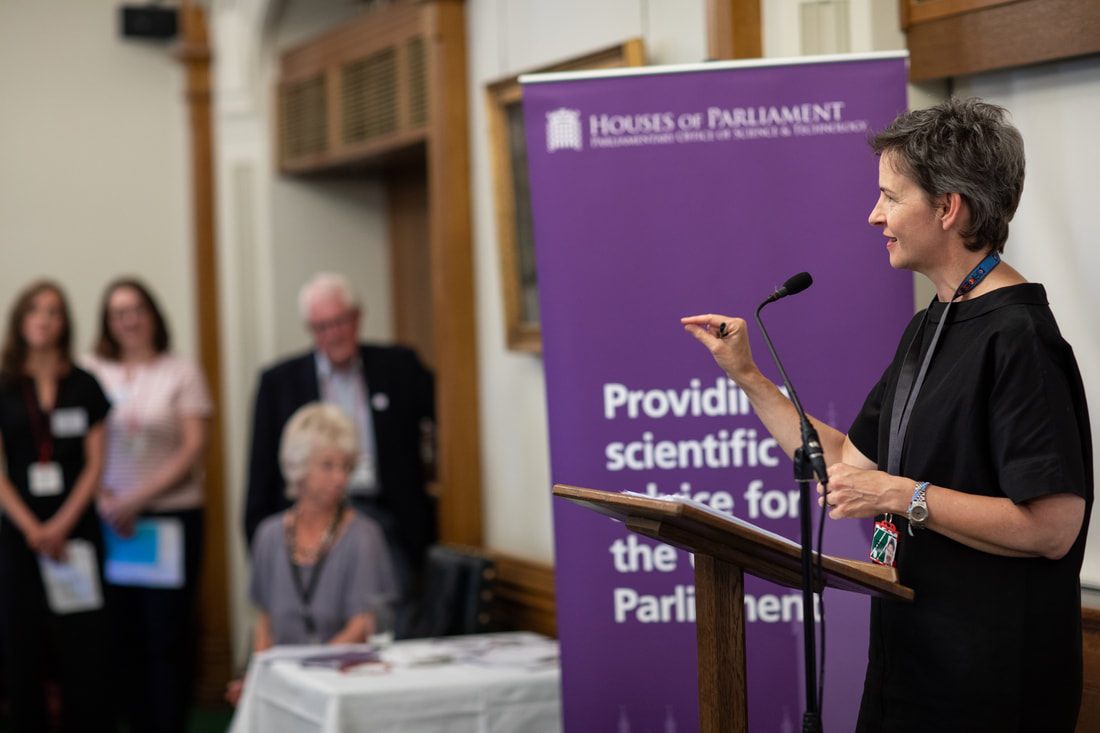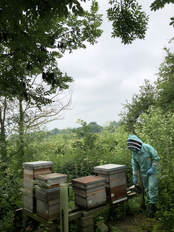|
Somerset Beekeepers’ Association (SBKA) raised awareness of the threat to pollinators from Asian hornets by addressing the House of Commons Science and Technology Committee on Monday (June 25).
SBKA chairman Anne Pike spoke to MPs as part of the first Evidence Week run by campaigning charity Sense about Science which seeks to promote evidence-based policy making. “Asian hornets pose a very real threat to honeybees in the UK and I am delighted that we were given this opportunity to highlight how our approach is guided by the latest scientific research,” she said. Speaking in response Mary Greagh, Chair of the Environmental Audit Committee, gave a personal assurance that her Committee would keep across the Asian hornet issue. “Part of what I want the committee to be looking at is how we watch out for Asian hornets, that invasive species which is coming into our country and potentially wiping out populations of bees.” She admired the passion people have for honeybees and described them as ‘these magical creatures that wonder around our gardens doing this incredibly important, but mostly, invisible work’. The yellow-legged Vespa velutina is colonising parts of Europe, killing honeybees and other insects. Although instances of Asian hornets in the UK have only been recorded on a few occasions in the last two years, beekeepers and environmentalists fear numbers will inevitably increase. Anne added: “As a result we have developed links with Exeter University, who are conducting research in Europe where the Asian hornet has become widespread. Based on their findings, we have chosen to take a ‘recognition and reporting’ approach.” Sightings reported to the Non-Native Species Secretariat trigger the deployment of bee inspectors who track the hornets back to their nests and destroy them. Anne Pike was one of 28 speakers from national and regional community groups which took part in a week of briefings and events to remind MPs and peers that reliable evidence matters in many walks of life. “In the case of beekeepers, evidence matters to us because it has allowed us to be prepared and identify the best strategies to protect our bees,” she said. Asian hornets are most active between April and November (peaking in August/September). Somerset Beekeepers has published an identification guide on their website along with how to report sightings. www.somersetbeekeepers.org.uk Ends For further information contact: Anne Pike, SBKA Chairman, on 07971 275840 About Somerset Beekeepers’ Association (SBKA):
Somerset Beekeepers’ Association (SBKA) will raise awareness of Asian hornets at the House of Commons Science and Technology Committee on Monday (June 25).
SBKA chairman Anne Pike will address MPs as part of the first Evidence Week run by campaigning charity Sense about Science which seeks to promote evidence-based policy making. “Asian hornets pose a very real threat to honeybees in the UK and I am delighted that we have been given this opportunity to highlight how our approach is guided by the latest scientific research,” she said. The yellow-legged Asian hornet (Vespa velutina) is a non-native species which is colonising parts of Europe, killing honeybees and other insects. Although instances of Asian hornets in the UK have only been recorded on a few occasions in the last two years, beekeepers and environmentalists fear numbers will inevitably increase. “As a result we have developed links with Exeter University, who are conducting research in Europe where the Asian hornet has become widespread. Based on their findings, we have chosen to take a ‘recognition and reporting’ approach,” she added. Sightings reported to the Non-Native Species Secretariat trigger the deployment of bee inspectors who track the hornets back to their nests and destroy them. Anne Pike is one of two dozen speakers from national and regional community groups taking part in a week of briefings and events to remind MPs and peers that reliable evidence matters in many walks of life. “In the case of beekeepers, evidence matters to us because it has allowed us to be prepared and identify the best strategies to protect our bees,” she said. Asian hornets are most active between April and November (peaking in August/September). Somerset Beekeepers has published an identification guide on their website along with how to report sightings. www.somersetbeekeepers.org.uk Ends Pix caps: SBKA Chairman Anne Pike
|
Archives
September 2023
Categories
All
|
Somerset Beekeepers Association Charity © 2021 Registered CIO Charity 1206483
Affiliated to the British Beekeepers Association
Click here to view our Privacy Policy
Affiliated to the British Beekeepers Association
Click here to view our Privacy Policy


 RSS Feed
RSS Feed
